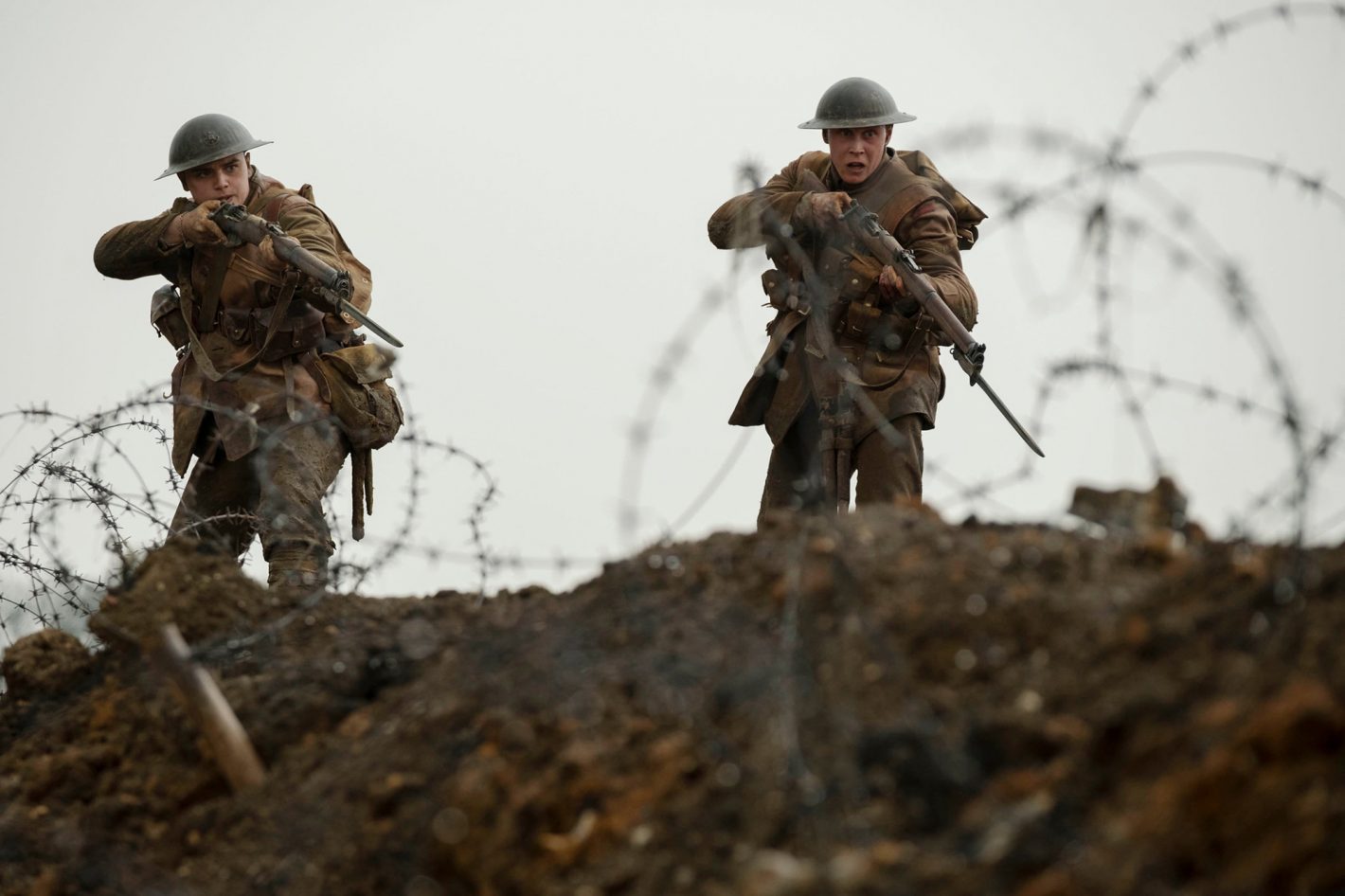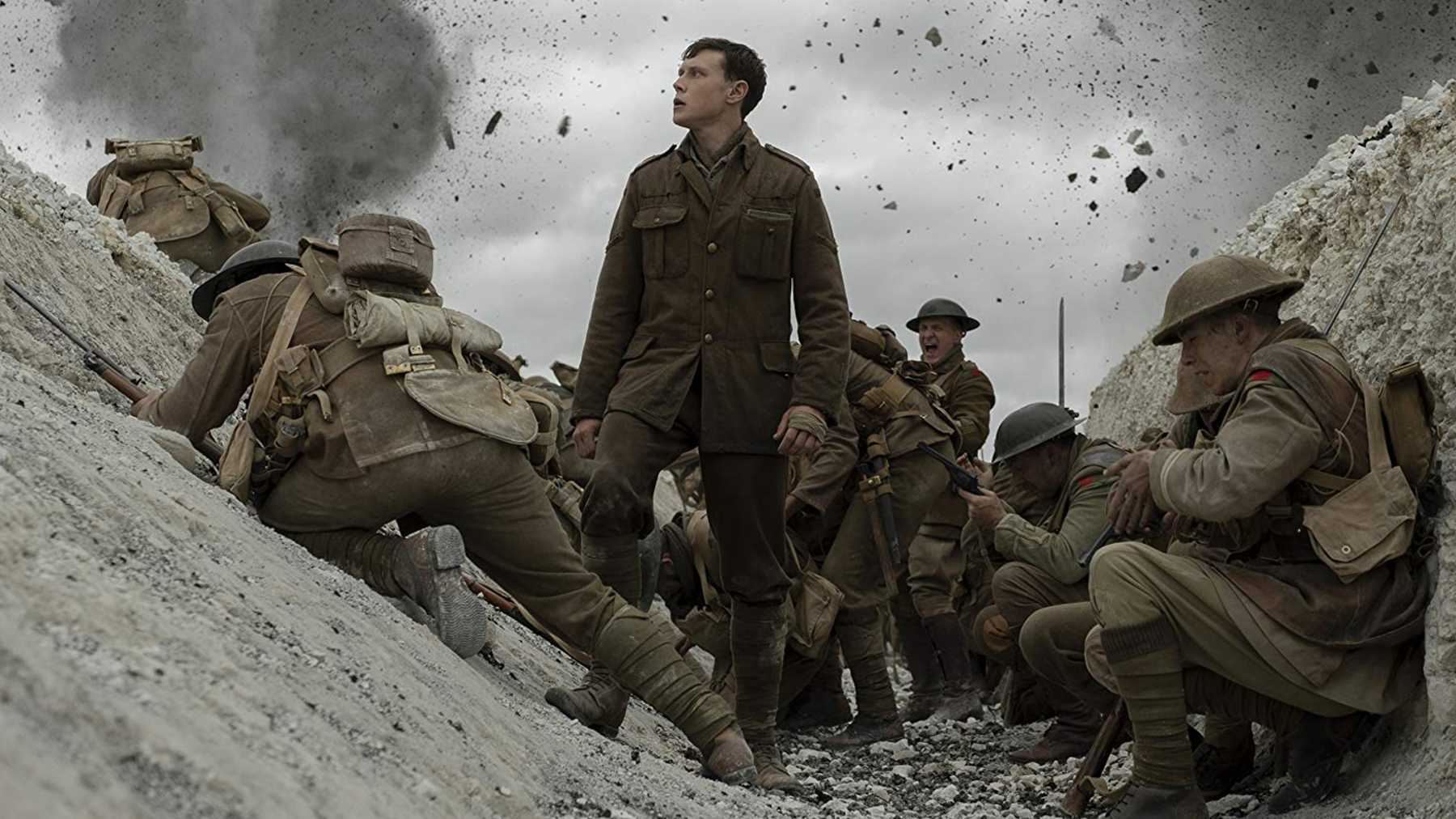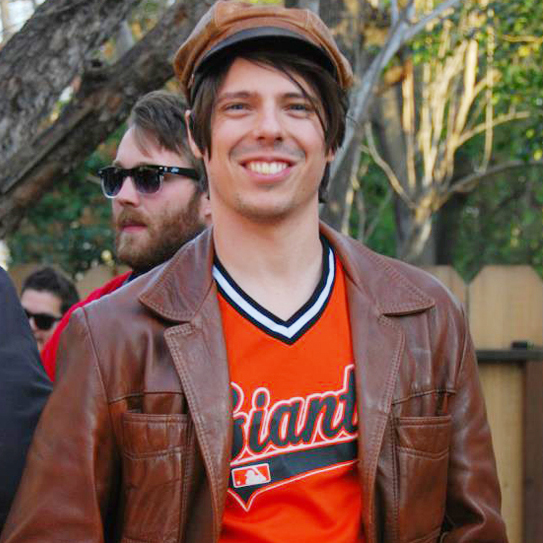
From my perch in the upper right corner of the theater this Friday last, I surveyed the matinee audience for an opening day screening of 1917. As one might expect, it was a largely grey-haired crowd, typified by a middle-aged woman who turned the corner of the entryway only to misjudge the first step of the stadium seating. This led to a trip and tumble, and the prompt ejection of three-quarters of her popcorn into the aisle. The man of generous proportions to my immediate right then dug lustily into an impossibly crinkled bag of hard candy—the stage was set.
1917 is an English WWI battlefield drama from director Sam Mendes (American Beauty, Skyfall), with a cast led by George MacKay (Captain Fantastic) and Dean-Charles Chapman (Game of Thrones), who no longer looks anything like Tommen Baratheon. Based loosely on WWI stories told by Mendes’ grandfather, novelist Alfred Mendes, 1917 follows Lance Corporals Schofield and Blake on the urgent and impromptu mission of running a message across the enemy lines of war-torn Flanders Fields to stop two British battalions from rushing headlong into a German trap.
The cinematography of 1917 isn’t just good or great; it’s spectacular. The first hour of the film is actually one continuous shot, which leads from behind the British line, through their trenches, over-the-top into no man’s land, through the German trenches and into what’s left of the Belgian countryside. Every last detail is painstakingly and uncannily accounted for in the process, to a point where you can’t help but wonder just how the hell they actually pulled off something like that. I suppose you start with a battle-decorated cinematographer like Roger Deakins, who between the aforementioned title cinematographer and director of photography lays claim to credits like 1984, The Shawshank Redemption, Kundun, No Country for Old Men and Blade Runner 2049, to name just a few. In other words you have a cinematic genius behind the camera, the result of which is something truly remarkable and deserving of all the awards one can throw at the field. Why is it that we never know the names of people like Roger Deakins? They have everything to do with how we perceive the films we love, are obviously known across the industry, and yet remain in the shadows to the general public. So it goes.

The other side of the coin for 1917 is an uninspired, boilerplate story. As stated prior, the film is “loosely” based on the tales of Mendes’ grandfather, who did in fact serve in the First Rifle Brigade and gutted out two years amid the horrors of Flanders. But for reasons that will never make sense to me, you take an already unimaginably dramatic scenario, and cock it up with whimsical flimflam and hackneyed cliches. The tale itself—of two men sent over-the-top to save the lives of 1,600 in a day’s time—is stretched far beyond the limits of plausibility as is. But the main offender here is the basis for Lance Corporal Blake’s selection as a runner: His brother is serving in one of the at-risk battalions. Not only is this a ridiculous heartstring lending nothing at all to character arcs, but it smacks openly of Saving Private Ryan. At the same time, 1917 has more than its fair share of stoic “war is hell” dialogue, a leading, cornball score and cameos for the sake of cameos (Colin Firth, Benedict Cumberbatch) advertised as if they were starring roles.
In so many ways, 1917 follows the readymade template for historical dramas released just before awards season, right down to laughable Peter Travers’ quotes in the trailer. (Honestly, what’s up with that dude, and who the fuck cares what Rolling Stone thinks?) It’s kind of a strange thing, really, to make a movie so conscientiously accurate from a visual standpoint, only to throw the story right out the window. Or maybe Sam Mendes and the like know exactly what they’re doing, and don’t mind pandering because they know precisely where it leads. Afterall, popcorn lady and the candy bag brigade couldn’t stop chuckling at all the cheeky WWI humor, and he’s already got a Golden Globe in his back pocket. Just remember that oftentimes it’s the Roger Deakinses’ of the world that deserve the applause and attention. Whether they actually get it or not is just one of those things.
{3 out of 5 stars}
**This review first appeared in print on page 8 of issue #309 (Jan. 15 – 29, 2020)**


Comments